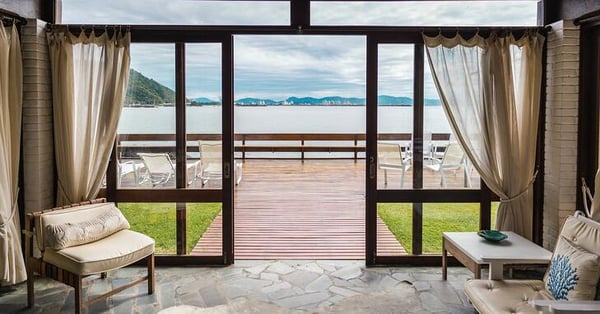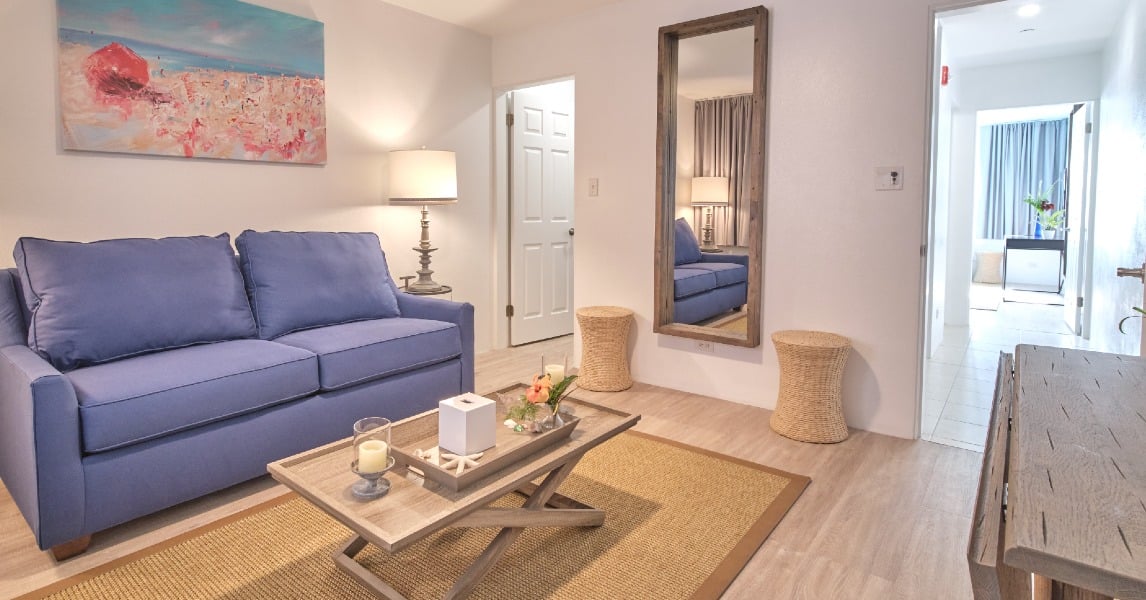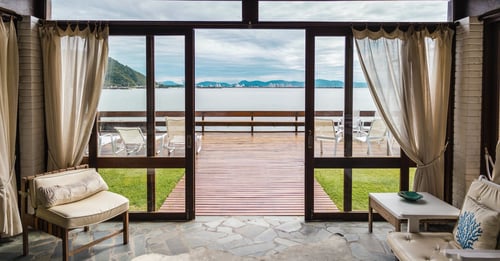What is fractional ownership? Fractional ownership is a pricing model that allows stakeholders to share high-value assets like vacation homes, supercars, aeroplanes and yachts, which can create lower entry costs for prospective buyers.
In this blog, we’ll provide a clear explanation of what fractional ownership in real estate is, its pros and cons, and also outline some other options to consider.
- What Is Fractional Ownership in Real Estate?
- What Are the Pros and Cons of Fractional Ownership?
- What Other Options are Available?
What Is Fractional Ownership in Real Estate?

With fractional ownership, a person buys a percentage of a property’s title or a right to use a property for a percentage of time each year. This means the overall cost of a property is split among a group of owners or users.
The concept of fractional ownership isn’t new and it does have some advantages. It’s been a more affordable way to “own” a high-value asset for some time. Yachts, aircraft and vacation homes with upscale amenities are just a few common assets in fractional ownership, helping several parties mitigate the risk of these expensive purchases.
Often, prospective buyers are apprehensive about sharing the “ownership” of a property with others they don’t know very well. Although it sounds similar to a timeshare, fractional ownership has one fundamental difference from the timeshare model.
In a timeshare, the buyer purchases the “right to use” a property for a set amount of time each year (e.g. a week) for a certain period (e.g. 50 years), after which their right to use expires. The developer continues to own the property.
Fractional ownership in real estate can also be bought on a “right to use” basis, as with timeshare. Still, in some programs, you can also buy a minority shareholding (sometimes called a deeded shared interest or equity) in a company that owns the title to the property. The easiest way to tell them apart? Fractional is typically buying equity, whereas timeshare is typically buying usage rights.
This also means sharing repairs, maintenance and annual running costs. You essentially have a group that shares accountability, maintenance, checks on the condo, the upkeep costs that would otherwise be left to one single owner.
With fractional ownership, you buy a fraction of any given year. For example, from a 12th (of a year) fraction up to a 6th. This allows fractional owners to occupy — or rent out — their condos each year for between 28 nights (for a 12th fraction) and 56 nights (for a 6th fraction).
With 28 to 56 days of usage each year, your unused days are available for rental but are generally limited to weekly rentals only (e.g. a Saturday changeover would mean Saturday to Saturday). If you’re buying in Bermuda, it’s also important to note that you aren’t always entitled to an Assessment Number, so you wouldn’t be able to purchase a vehicle in your vacation location.
Before you decide whether fractional ownership is the right avenue you want to take for purchasing your next property, you must weigh the pros and cons, which are outlined in the next section.
What Are the Pros and Cons of Fractional Ownership?
Like any type of property investment, there are potential drawbacks to engaging in fractional ownership. However, that isn’t to say that fractional ownership can’t be advantageous if you invest in a property at the right time and in the right place. Let’s address some of the most important pros and cons of fractional ownership you should be aware of.
The Pros of Fractional Ownership

Share the Costs to Make It More Affordable
Many people dream of owning a vacation home in a spectacular destination, but sometimes their income just doesn’t allow it. It’s unlikely to secure a mortgage on a fractional property, so you’ll normally need cash to purchase. However, by joining in with four (six, eight, 10 or 12) property partners, you can split the costs of buying and running a vacation home.
Perhaps a $3M condo is out of reach, but $500,000 would be in your range. Fractional ownership helps you get the property you want in the most desirable location at the price you can afford. Affordability goes for home maintenance, too.
The Property Will Be Used Regularly
No home should sit vacant for significant periods. If you’re looking to invest in a second property, there will likely be parts of the year you’re unable to visit.
This could mean potential problems arise within the property without being aware of them. The home will open up at regular intervals by sharing the ownership.
Therefore, it’s easier to keep on top of certain aspects such as water supplies, ensuring the air conditioning and heaters work, and avoiding the buildup of dust. Fractional ownership provides an opportunity to identify issues early on and preserve the home’s long-term value.
Peace of Mind and Shared Duties
Fractional ownership also means sharing the responsibility of owning the property. You essentially have a group that shares accountability, maintenance, checks on the condo and divides the work that would otherwise be left to one owner.
By sharing upkeep costs, fractional ownership makes long-term ownership much more realistic. However, with these advantages come some disadvantages.
The Cons of Fractional Ownership

They Can Be Difficult to Resell
In traditional fractional ownership; selling isn’t as straightforward as whole ownership. In addition, it’s very hard in some markets to find an agent who’ll sell fractional ownership if doing so proves difficult.
Many times, prospective buyers are cautious about entering into a partnership with someone they don’t know very well. Partners in the ownership can make it extremely difficult for the property to sell in the hope they can acquire full ownership or more of the ownership for significantly less.
Plans Have the Potential to Clash
With fractional ownership; you might find that one owner wants to use the property for just personal getaways and family members. At the same time, another partner may wish to rent it out as a short-term vacation rental.
Although short-term vacation renters can bring in extra money, renters can also damage the property and limit the owners’ overall usage of the property. When you’re working with groups of between four and 10 owners, this decision process can sometimes be long and unproductive.
HOAs or Local Regulations Can Cause Restrictions
Some communities are now cracking down on fractional ownership of vacation homes. While it’s difficult for them to eliminate it, some HomeOwners’ Associations (HOAs) limit ownership privileges to just one or two owners.
As with vacation rentals and vacation properties, fractionally-owned vacation properties could be subject to HOA restrictions and even banned outright in certain areas.
Fractional ownership is just like anything else — it has its pros and cons. To help you weigh up your options, we thought it’d be worth explaining some of the other potential avenues you could choose to take to purchase your dream property.
What Other Options Are Available?

You may decide that fractional ownership isn’t the right option for you. There’s no need to worry if so, as there are other routes you can take to purchase the second home you’ve always wanted. These include:
Timeshares
The term timeshare was coined in the early 60s as an affordable and attractive way for families to spend time in a vacation hotspot. It makes buying an expensive property more affordable and has been a popular choice for decades.
There’s a range of different timeshare options available for purchasing a property. These include:
-
Fixed week: The buyer usually owns the right to use a specific unit in the same week each year for as long as the contract stipulates. There’s predictability and little flexibility if you want to experience a vacation at different times of the year.
-
Floating Time: The buyer can reserve their own time during given time periods. This option has more freedom, but getting the exact time you want may be difficult when other sharers are fighting for prime time.
-
Points Club: This is similar to a floating timeshare, but rather than buyers having a specific week at a chosen resort, they buy points that convert into different amounts of time that can be spent in a portfolio of different resorts around the world. The points purchased are used as currency in exchange for time slots at the property of the buyer’s choice. Reservations are on a first-come-first-served basis.
Although you don’t have to worry about year-round maintenance, you’ll have to pay an annual fee to cover it whether you spend time at the property or not. The developer can foreclose on your timeshare if you neglect to pay this.
The biggest drawback to timeshares is that reselling is almost impossible, with steep discounts needed to shift your share. If you manage to sell at a loss, you won’t be able to claim a capital loss as you would with other investments. Timeshares are a lifestyle purchase and might not suit those looking for a slice of real estate.
Whole Ownership
This is the pricing model you’re probably most familiar with. With whole ownership, you buy the deeded title of a property and take on full responsibility yourself.
Since real estate traditionally appreciates over time, you’ll have significantly less resistance when it comes to reselling your property. You also have the advantage of certain property ownership tax breaks. So purchasing a vacation home can be justified, not only as a recreational expense for vacations but also as a potential investment.
You’ll likely choose to buy a condo in a vacation area you go back to year after year. This will allow you to save the money you spent on hotel rooms or renting. There’s also peace of mind, knowing you get to go back to the same place each year, knowing its location, quality standard and people. It's your second home.
If you buy a single-family home, you’ll be responsible for all repairs and maintenance, the management of the property and, if it is going to be used as a vacation home, the rental program. All very do-it-yourself.
If you buy in a condominium, apartment building or a unit in a resort environment, there will typically be a management company and, in the case of a resort, a rental service, meaning a lot of the admin is covered for you.
Whole Ownership in a Hotel Condominium
If renting out your vacation home is important to you; there’s a type of whole ownership that might well be of interest. And that's the hotel condominium model.
hotel condominium resorts carry out all repairs and maintenance and property management for you under the whole ownership model above. The big difference is the rental service.
hotel condominiums are generally affiliated with big hotel brands, like Hilton. They take charge of renting out your property for you when you aren’t in residence.
That makes vacation homeownership even easier. For that reason, hotel condominiums have become popular for offering hassle-free vacation homeownership. It’s a case of turning up and putting your feet up.
Learn More About Hotel Condominium Whole Ownership in an Enviable Location
Whole ownership in a hotel condominium is a great way to own property in a spectacular vacation destination. There are so many advantages; that’s why we’ve created a visual guide for everything you need to know about owning a condo this way and how it weighs up against fractional ownership.
It makes knowing everything about hotel condominium ownership simple, from a resorts’ relationship with prestigious hospitality giants like Hilton to how they can potentially make great rental properties.






